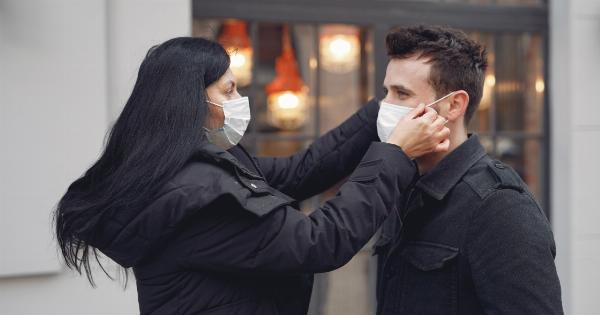Influenza, also known as the flu, is a contagious respiratory illness caused by influenza viruses that infect the nose, throat, and sometimes the lungs.
Symptoms of the flu can range from mild to severe, and can lead to complications such as pneumonia, bronchitis, and sinus infections. One common phenomenon that individuals with the flu experience is the worsening of symptoms during the nighttime. In this article, we will explore the connection between influenza and nighttime worsening of symptoms and what causes it.
What are the Symptoms of Influenza?
Influenza symptoms typically develop one to four days after being exposed to the virus and can last for up to two weeks. Symptoms can vary from person to person, but the most common symptoms of the flu include:.
- Fever or feeling feverish/chills
- Cough
- Sore throat
- Runny or stuffy nose
- Muscle or body aches
- Headaches
- Fatigue (feeling tired)
- Vomiting and diarrhea (more common in children than adults)
What Causes Nighttime Worsening of Symptoms?
The worsening of symptoms during the nighttime is a common occurrence for individuals who have the flu. There are several reasons why nighttime can make flu symptoms worse, including:.
Increased Inflammation
During the nighttime, our body’s natural anti-inflammatory hormones, such as cortisol, are at their lowest levels. This can lead to an increase in inflammation in our body, including the airways in our lungs.
When our airways are inflamed, it can become harder to breathe, leading to coughing and wheezing.
Mucus Build-Up
When we lie down at night, mucus can accumulate in our sinuses and lungs, making it harder to breathe.
Additionally, our body’s natural clearing mechanisms, such as coughing and sneezing, can be less effective when we are lying down, making it harder to clear mucus from our respiratory system.
Dry Air
During the winter months, when the air is dry, it can irritate the lining of our nose and throat, leading to a dry cough and a sore throat. This irritation can also trigger the body’s cough reflex, leading to more coughing during the nighttime.
Fever
Fevers are a common symptom of the flu, and they can lead to chills and sweating during the nighttime. This can cause discomfort and disrupt sleep, making it harder to get the rest you need to recover from the flu.
How to Alleviate Nighttime Worsening of Symptoms
If you are experiencing nighttime worsening of flu symptoms, there are several things you can do to alleviate your discomfort and get the rest you need to recover:.
Use a Humidifier
A humidifier can help add moisture to the air in your room, reducing irritation in your nose and throat and making it easier to breathe. This can be especially helpful if you are experiencing a dry cough or a sore throat.
Elevate Your Head
By elevating your head while you sleep, you can help reduce mucus build-up in your sinuses and lungs. This can be achieved by using a wedge pillow or by propping up your pillows.
Stay Hydrated
Drinking plenty of fluids, especially water, can help keep your throat and nasal passages moist, reducing irritation and making it easier to breathe.
Additionally, staying hydrated can help ease your fever symptoms and keep you comfortable during the nighttime.
Take Medications
If your flu symptoms are particularly severe, your doctor may recommend medications such as antivirals, decongestants, or cough suppressants. These can help alleviate your symptoms and make it easier to get the rest you need to recover.
Conclusion
Nighttime worsening of symptoms is a common occurrence for individuals with the flu. The reasons why this happens can include increased inflammation, mucus build-up, dry air, and fever.
Luckily, there are several things you can do to alleviate your nighttime flu symptoms, including using a humidifier, elevating your head, staying hydrated, and taking medications if necessary. By taking these steps, you can get the rest you need to recover from the flu and feel better soon.






























